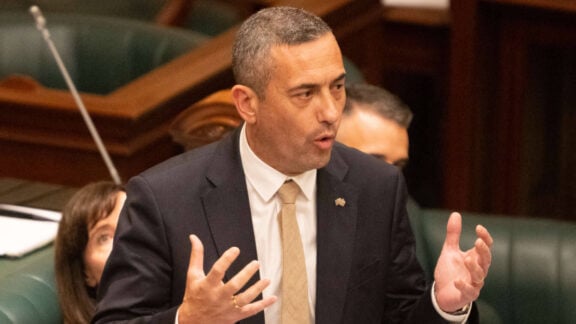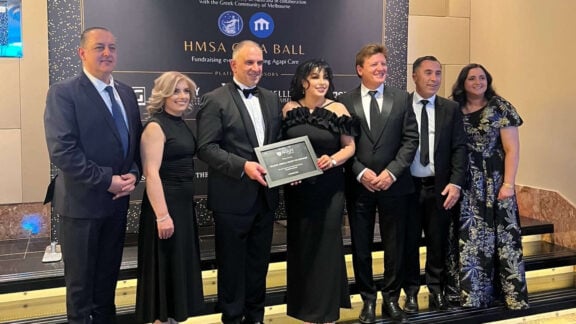Ethnic community leaders in Sydney are demanding the removal of the NSW government’s most senior official in charge of the state’s multicultural affairs, claiming guidance he gave to local councils promotes the agenda of his Turkish homeland.
Chief executive of Multicultural NSW Mr Hakan Harman has been accused of serving Turkish interests by issuing guidelines which say public memorials should not “assign blame” where a memorial is constructed to mark what he described as a “contentious” historical event.
Mr Harman’s actions – without first advising Minister for Communities Victor Dominello – has been widely condemned by Armenian, Greek, and Assyrian community leaders who have released a joint statement demanding Mr Harman’s resignation.
Signatories to the statement include the Assyrian Universal Alliance, the Australian Hellenic Council of NSW, the Greek Orthodox Community of NSW, the Cyprus Community of NSW, the Armenian National Committee of Australia, and the Korean Society of Sydney.
The statement said that in October 2014, the Australian Turkish Advocacy Alliance (ATTA) presented Mr Harman with a set of draft guidelines relating to the recognition of historical events, and that the Multicultural NSW CEO had adopted a version of the ATTA-conceived guidelines without the approval of NSW’s Minister for Communities Victor Dominello.
According to the statement, Mr Harman subsequently distributed the guidelines to local councils “to negatively influence recognition of important historical events, such as the Assyrian Genocide, the Korean and Chinese Comfort Women, and the Armenian Genocide in this Centenary year”.
While the published guidelines did not specifically mention the Armenian Genocide, Neos Kosmos understands that a letter from the ATAA to Mr Harman encouraged him to introduce criteria that would restrict public money being used by “specific ethnic groups” to promote their “own interpretations of historical events”.
“We do not believe that it is appropriate for government, at any level in Australia, to ‘weigh in’ on those historical matters,” the letter added.
On February 3, the ATTA issued a media release applauding Multicultural NSW for adopting the guidelines prior to their official distribution.
Mr Harman was forced to withdraw the guidelines eight days later after the intervention of Minister Dominello, who had been only made aware of their existence by community leaders. Mr Harman said this week that he had “made an error of judgement by not consulting more widely”.
In 1997, the NSW Legislative Assembly unanimously acknowledged the genocide of 1.5 million Armenians, Assyrians and Greeks between 1915 and 1922 and a memorial marking the Legislative Assembly’s resolution – which “condemns and rejects all attempts to deny or distort the historical truth” – was erected at Parliament House.
Genocide scholar Dr Panayiotidis Diamidis told Neos Kosmos that Mr Harman’s position as head of Multicultultural NSW was now untenable.
“Nothing less than [his] resignation or dismissal is satisfactory action, given the severity of his actions in jeopardising NSW Government policy-making.
“Harman’s attempted manipulation of Multicultural NSW, his blatant attempt at entrenching a denialist position – in contradiction of the positions of the Parliament and Government he works for – only adds to Harman’s offence.”
The Armenian Apostolic Church is planning to erect a new memorial in Willoughby to mark the Genocide later this year.
Chinese and Korean Australians also have intentions to erect a statue in Strathfield to commemorate hundreds of thousands of so-called “comfort women” – sex slaves from occupied countries who were abused by Japanese soldiers during WWII.
After meeting with representatives from Assyrian, Armenian, Greek and Cypriot community organisations this week, Minister Dominello said that the guidelines supplied to local councils had been circulated without his approval and without prior community consultation.
The minister added that he has asked Multicultural NSW to conduct a review of the process by which the guidelines were developed.









